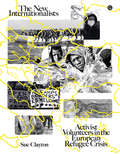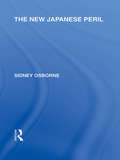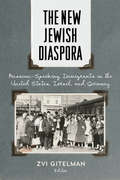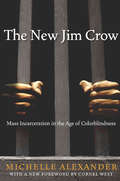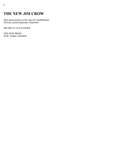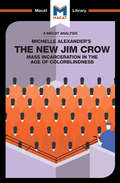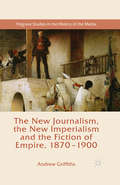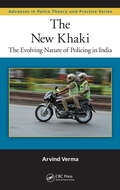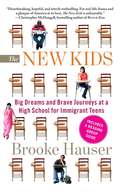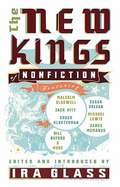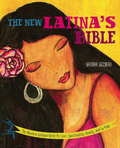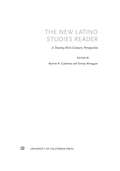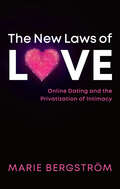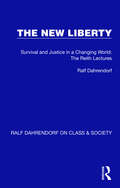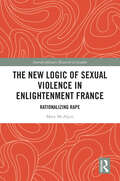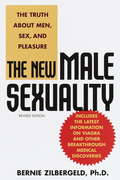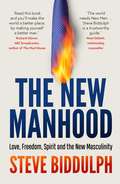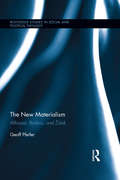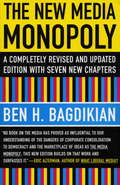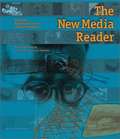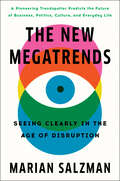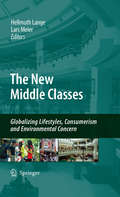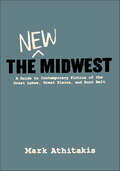- Table View
- List View
The New Internationalists: Activist Volunteers in the European Refugee Crisis
by Sue ClaytonAn account of the mobilization of thousands of volunteers who rescued, supported, and welcomed refugees during the recent European refugee crisis.In The New Internationalists, Sue Clayton tells the story of the largest civic mobilization since the Second World War, when volunteers--many young and untrained--took on unimaginable responsibilities and saved thousands of lives. During the European refugee crisis of 2015-2020, they witnessed first hand the catastrophic failure of established NGOs, and the indifference--and frequently, the open hostility--of the EU and national governments. Many faced state hostility themselves. Their accounts show how activist volunteers have shaped today's European humanitarian agenda, and provide a powerful critique of failures of current policy.
The New Japanese Peril (Routledge Library Editions: Japan)
by Sidney OsborneThis volume examines the issues surrounding the renewal of the Anglo-Japanese Treaty of Alliance and looks at the possible consequences of different courses of action, against a backdrop of a Far Eastern situation under constant change. In spite of claims of impartiality, this volume represents widely-held views of the day that "the future supremacy of the white races is endangered" and the author claims to have remained as objective as possible, despite "being a member of the Western family of nations against whom the new Japanese peril may come to be directed."
The New Jewish Diaspora: Russian-Speaking Immigrants in the United States, Israel, and Germany
by Zvi Gitelman Mikhail Krutikov Stephanie Sandler Anna Shternshis Sveta Roberman Uzi Rebhun Jonathan Dekel-Chen Adrian Wanner Nelly Elias Steven J. Gold Mark Tolts Hannah Pollin-Galay Julia Lerner Marina Sapritsky Elena Nosenko-Shtein Olena Bagno-Moldavski Eliezer Ben-Rafael Gur Ofer Yaacov Ro'IIn 1900 over five million Jews lived in the Russian empire; today, there are four times as many Russian-speaking Jews residing outside the former Soviet Union than there are in that region. The New Jewish Diaspora is the first English-language study of the Russian-speaking Jewish diaspora. This migration has made deep marks on the social, cultural, and political terrain of many countries, in particular the United States, Israel, and Germany. The contributors examine the varied ways these immigrants have adapted to new environments, while identifying the common cultural bonds that continue to unite them. Assembling an international array of experts on the Soviet and post-Soviet Jewish diaspora, the book makes room for a wide range of scholarly approaches, allowing readers to appreciate the significance of this migration from many different angles. Some chapters offer data-driven analyses that seek to quantify the impact Russian-speaking Jewish populations are making in their adoptive countries and their adaptations there. Others take a more ethnographic approach, using interviews and observations to determine how these immigrants integrate their old traditions and affiliations into their new identities. Further chapters examine how, despite the oceans separating them, members of this diaspora form imagined communities within cyberspace and through literature, enabling them to keep their shared culture alive. Above all, the scholars in The New Jewish Diaspora place the migration of Russian-speaking Jews in its historical and social contexts, showing where it fits within the larger historic saga of the Jewish diaspora, exploring its dynamic engagement with the contemporary world, and pointing to future paths these immigrants and their descendants might follow.
The New Jim Crow: Mass Incarceration in the Age of Colorblindness
by Cornel West Michelle Alexander<P>Once in a great while a book comes along that changes the way we see the world and helps to fuel a nationwide social movement. The New Jim Crow is such a book. <P>Praised by Harvard Law professor Lani Guinier as "brave and bold," this book directly challenges the notion that the election of Barack Obama signals a new era of colorblindness. With dazzling candor, legal scholar Michelle Alexander argues that "we have not ended racial caste in America; we have merely redesigned it." <P>By targeting black men through the War on Drugs and decimating communities of color, the U.S. criminal justice system functions as a contemporary system of racial control--relegating millions to a permanent second-class status--even as it formally adheres to the principle of colorblindness. In the words of Benjamin Todd Jealous, president and CEO of the NAACP, this book is a "call to action.<P><P> <P><b>A New York Times Bestseller</b>
The New Jim Crow: Mass Incarceration in the Age of Colorblindness
by Michelle AlexanderSeldom does a book have the impact of Michelle Alexander’s The New Jim Crow. Since it was first published in 2010, it has been cited in judicial decisions and has been adopted in campus-wide and community-wide reads; it helped inspire the creation of the Marshall Project and the new $100 million Art for Justice Fund; it has been the winner of numerous prizes, including the prestigious NAACP Image Award; and it has spent nearly 250 weeks on the New York Times bestseller list. <p><p>Most important of all, it has spawned a whole generation of criminal justice reform activists and organizations motivated by Michelle Alexander’s unforgettable argument that “we have not ended racial caste in America; we have merely redesigned it.” As the Birmingham Newsproclaimed, it is “undoubtedly the most important book published in this century about the U.S.” <p><p>Now, ten years after it was first published, The New Press is proud to issue a tenth-anniversary edition with a new preface by Michelle Alexander that discusses the impact the book has had and the state of the criminal justice reform movement today.
The New Jim Crow: Mass Incarceration in the Age of Colorblindness
by Ryan MooreMichelle Alexander’s The New Jim Crow: Mass Incarceration in the Age of Colorblindness is an unflinching dissection of the racial biases built into the American prison system. Named after the laws that enforced racial segregation in the southern United States until the mid-1960s, The New Jim Crow argues that while America is now legally a colorblind society – treating all races equally under the law – many factors combine to build profound racial weighting into the legal system. The US now has the world’s highest rate of incarceration, and a disproportionate percentage of the prison population is comprised of African-American men. Alexander’s argument is that different legal factors have combined to mean both that African-Americans are more likely to be targeted by police, and to receive long jail sentences for their crimes. While many of Alexander’s arguments and statistics are to be found in other books and authors’ work, The New Jim Crow is a masterful example of the reasoning skills that communicate arguments persuasively. Alexander’s skills are those fundamental to critical thinking reasoning: organizing evidence, examining other sides of the question, and synthesizing points to create an overall argument that is as watertight as it is persuasive.
The New Journalism, the New Imperialism and the Fiction of Empire, 1870-1900 (Palgrave Studies in the History of the Media)
by Andrew GriffithsAggressive policy, enthusiastic news coverage and sensational novelistic style combined to create a distinctive image of Britain's Empire in late-Victorian print media. The New Journalism, the New Imperialism and the Fiction of Empire, 1870-1900 traces this phenomenon through the work of editors, special correspondents and authors.
The New Khaki: The Evolving Nature of Policing in India (Advances in Police Theory and Practice)
by Arvind VermaIn a democratic society, police are expected to be accountable to the people they serve, upholding the rights of citizens and following due process. In India, however, political pressure in the competitive electoral arena forces the police to adopt questionable means and dubious strategies. As a hierarchical bureaucratic organization, disciplined i
The New Kids
by Brooke HauserSome walked across deserts and mountains to get here. Others flew in on planes. One arrived after escaping in a suitcase. And some won't say how they got here. These are "the new kids": new to America and all the routines and rituals of an American high school, from lonely first days to prom. They attend the International High School at Prospect Heights in Brooklyn, which is like most high schools in some ways--its halls are filled with students gossiping, joking, flirting, and pushing the limits of the school's dress code--but all of the students are recent immigrants learning English. Together, they come from more than forty-five countries and speak more than twenty-eight languages. A singular work of narrative journalism, The New Kids chronicles a year in the life of a remarkable group of these teenage newcomers--a multicultural mosaic that embodies what is truly amazing about America. Hauser's unforgettable portraits include Jessica, kicked out of her father's home just days after arriving from China; Ngawang, who spent twenty-four hours folded up in a small suitcase to escape from Tibet; Mohamed, a diamond miner's son from Sierra Leone whose arrival in New York City is shrouded in mystery; Yasmeen, a recently orphaned Yemeni girl who is torn between pursuing college and marrying so that she can take care of her younger siblings; and Chit Su, a Burmese refugee who is the only person to speak her language in the entire school. The students in this modern-day Babel deal with enormous obstacles: traumas and wars in their countries of origin that haunt them, and pressures from their cultures to marry or to drop out and go to work. They aren't just jostling for their places in the high school pecking order--they are carving out new lives for themselves in America. The New Kids is immersion reporting at its most compelling as Brooke Hauser takes us deep inside the dramas of five International High School students who are at once ordinary and extraordinaryin their separate paths to the American Dream. Readers will be rooting for these kids long after reading the stories of where they came from, how they got here, and where they are going next.
The New Kings of Nonfiction
by Ira GlassA collection of stories-some well known, some more obscure- capturing some of the best storytelling of this golden age of nonfiction. <P><P> An anthology of the best new masters of nonfiction storytelling, personally chosen and introduced by Ira Glass, the producer and host of the award-winning public radio program This American Life. These pieces-on teenage white collar criminals, buying a cow, Saddam Hussein, drunken British soccer culture, and how we know everyone in our Rolodex-are meant to mesmerize and inspire. .
The New Latina's Bible: The Modern Latina's Guide to Love, Spirituality, Family, and La Vida
by Sandra GuzmánIn this new edition of a book that's been a go-to guide for young Latinas for years, award-winning journalist Sandra Guzman tackles the real-world complications facing Latinas today. With warmth, humor, and wisdom, The New Latina's Bible explores a wide range of issues, touching on everything from family to dating to the workplace. Guzman offers helpful tips on improving self-esteem, and provides simple, easy-to-follow women's health advice. New chapters take on important topics like sexual abuse, domestic violence, interracial relationships, and LGBTQ issues. In The New Latina's Bible, Guzman shows other Latinas that they are not alone in the day-to-day dilemmas that they encounter, and that understanding these challenges can strengthen and empower them as women. A must-read for any Latina who faces the trials of living, loving, and dreaming in two worlds-the old world of their mamá, tías, and abuelitas, and the new world in which they are immersed-this comprehensive book helps to bridge the gap between the dual realities that shape and define the nueva Latina.
The New Latino Studies Reader: A Twenty-First-Century Perspective
by Tomas Almaguer Ramon A. GutierrezThe New Latino Studies Reader is designed as a contemporary, updated, multifaceted collection of writings that bring to force the exciting, necessary scholarship of the last decades. Its aim is to introduce a new generation of students to a wide-ranging set of essays that helps them gain a truer understanding of what it's like to be a Latino in the United States. With the reader, students explore the sociohistorical formation of Latinos as a distinct panethnic group in the United States, delving into issues of class formation; social stratification; racial, gender, and sexual identities; and politics and cultural production. And while other readers now in print may discuss Mexican Americans, Puerto Ricans, Cubans and Central Americans as distinct groups with unique experiences, this text explores both the commonalities and the differences that structure the experiences of Latino Americans. Timely, thorough, and thought-provoking, The New Latino Studies Reader provides a genuine view of the Latino experience as a whole.
The New Laws of Love: Online Dating and the Privatization of Intimacy
by Marie BergströmOnline dating has become a widespread feature of modern social life. In less than two decades, seeking partners through commercial intermediaries went from being a marginal and stigmatized practice to being a common activity. How can we explain this rapid change and what does it tell us about the changing nature of love and sexuality? In contrast to those who praise online dating as a democratization of love and those who condemn it as a commodification of intimacy, this book tells a different story about how and why online dating became big. The key to understanding the growing prevalence of digital dating lies in what Marie Bergström calls “the privatization of intimacy.” Online dating takes courtship from the public to the private sphere and makes it a domestic and individual practice. Unlike courtship in traditional settings such as school, work, and gatherings of family and friends, online dating makes a clear distinction between social and sexual sociability and renders dating much more discrete. Apparently banal, this privatizing feature is fundamental for understanding both the success and the nature of digital matchmaking. Bergström also sheds light on the persisting inequalities of intimate life, showing that online dating is neither free nor fair: it has its winners and losers and it differs significantly according to gender, age and social class. Drawing on a wide range of empirical material, this book challenges what we think we know about online dating and gives us a new understanding of who, why, and how people go online to seek sex and love.
The New Liberty: Survival and Justice in a Changing World: The Reith Lectures (Ralf Dahrendorf on Class & Society #4)
by Ralf DahrendorfOriginally published in 1975, Ralf Dahrendorf’s Reith Lectures were an important contribution to public debate, exploring as they do the theme of the new liberty and being concerned to refashion liberalism to cope with the problems and tension of contemporary societies. The analysis covers endemic economic problems, such as growth, inflation and development, the complex nature of organizations, and the problems of political representation.
The New Logic of Sexual Violence in Enlightenment France: Rationalizing Rape (Interdisciplinary Research in Gender)
by Mary McAlpinThis book argues that rape as we know it was invented in the eighteenth century, examining texts as diverse as medical treatises, socio-political essays, and popular novels to demonstrate how cultural assumptions of gendered sexual desire erased rape by making a woman’s non-consent a logical impossibility. The Enlightenment promotion of human sexuality as natural and desirable required a secularized narrative for how sexual violence against women functioned. Novel biomedical and historical theories about the "natural" sex act worked to erase the concept of heterosexual rape. McAlpin intervenes in a far-ranging assortment of scholarly disciplines to survey and demonstrate how rape was rationalized: the history of medicine, the history of sexuality, the development of the modern self, the social contractarian tradition, the global eighteenth century, and the libertine tradition in the eighteenth-century novel. This intervention will be essential reading to students and scholars in gender studies, literature, cultural studies, visual studies, and the history of sexuality.
The New Male Sexuality: The Truth About Men, Sex, and Pleasure
by Bernie ZilbergeldThe New Male Sexuality addresses the most urgent questions of men today--and of the women who love them. Bernie Zilbergeld reports findings from his twenty years as a psychologist specializing in human sexuality, as well as those other experts in the field, and shares his own and his clients' experiences. the result is the most comprehensive guide ever to enhancing desire and arousal, focusing on pleasure rather than performance, and keeping sex exciting and fulfilling. Clear, comprehensive, witty, and refreshingly realistic, The New Male Sexuality is destined to be a classic of the nineties and beyond. From the Paperback edition.
The New Manhood: Love, Freedom, Spirit and the New Masculinity
by Steve BiddulphThe landmark text aimed at conquering toxic masculinity and paving the way for a fairer world, updated for a new generation. For twenty years, Steve Biddulph’s groundbreaking book Manhood and the revised edition, The New Manhood, have had a remarkable impact around the world. Thousands of men have reconciled with their fathers, become more involved with their children, rejuvenated their marriages and made sweeping changes to their lives. This book explores every aspect of a man’s life in an honest and uplifting way: love, friendship, sex, marriage, raising children, spirituality and finding your true work – all in plain language and illuminated with powerful, real-life stories. This is the handbook for men of all ages, and for the women who love them – now with a new foreword by the author, ‘Delivering the Male’. ‘Steve Biddulph is a spellbinder.’ Charles Wooley, 60 Minutes ‘I wish Steve Biddulph had been my dad.’ Sam de Brito, author of The Lost Boys and Hello Darkness ‘Read this book and you’ll make the world a better place.’ Richard Glover, author of The Land Before Avocado ‘The world needs New Men . . . Steve Biddulph is a trustworthy guide.’ Noel Giblett, relationship counsellor ‘This landmark work is for those who truly want to understand and nurture the men and boys in their lives, and for men who want to understand themselves better’ Maggie Hamilton, author of What Men Don’t Talk About
The New Materialism: Althusser, Badiou, and Žižek (Routledge Studies in Social and Political Thought #102)
by Geoff PfeiferAlain Badiou and Slavoj Žižek have become two of the dominant voices in contemporary philosophy and critical theory. In this book, Geoff Pfeifer offers an in-depth look at their respective views. Using Louis Althusser’s materialism as a starting point—which, as Pfeifer shows, was built partially as a response to the Marxism of the Parti Communiste Français and partially in dialogue with other philosophical movements and intellectual currents of its times—the book looks at the differing ways in which both Badiou’s and Žižek’s work attempt to respond to issues that arise within the Althusserian edifice. Pfeifer argues here that, ultimately, Žižek’s materialism succeeds in responding to these issues in ways that Badiou’s does not. In building this argument, Pfeifer engages not only with the work of Althusser, Badiou, and Žižek and their intellectual backgrounds, but also with much of the contemporary scholarship surrounding these thinkers. As such, Pfeifer’s book is an important addition to the ongoing debates within contemporary critical theory.
The New Media Monopoly
by Ben H. BagdikianWhen the first edition of The Media Monopoly was published in 1983, critics called Ben Bagdikian's warnings about the chilling effects of corporate ownership and mass advertising on the nation's news "alarmist." Since then, the number of corporations controlling most of America's daily newspapers, magazines, radio and television stations, book publishers, and movie companies has dwindled from fifty to ten to five.The most respected critique of modern mass media ever issued is now published in a completely updated and revised twentieth anniversary edition.'Ben Bagdikian has written the first great media book of the twenty-first century. The New Media Monopoly will provide a roadmap to understanding how we got here and where we need to go to make matters better.' -Robert McChesney, author of Rich Media, Poor DemocracyFrom the Trade Paperback edition.
The New Media Nation: Indigenous Peoples and Global Communication (Anthropology of Media #2)
by Valerie AliaAround the planet, Indigenous people are using old and new technologies to amplify their voices and broadcast information to a global audience. This is the first portrait of a powerful international movement that looks both inward and outward, helping to preserve ancient languages and cultures while communicating across cultural, political, and geographical boundaries. Based on more than twenty years of research, observation, and work experience in Indigenous journalism, film, music, and visual art, this volume includes specialized studies of Inuit in the circumpolar north, and First Nations peoples in the Yukon and southern Canada and the United States.
The New Media Reader
by Nick Montfort Noah Wardrip-FruinThis reader collects the texts, videos, and computer programs--many of them now almost impossible to find--that chronicle the history and form the foundation of the still-emerging field of new media. General introductions by Janet Murray and Lev Manovich, along with short introductions to each of the texts, place the works in their historical context and explain their significance. The texts were originally published between World War II--when digital computing, cybernetic feedback, and early notions of hypertext and the Internet first appeared--and the emergence of the World Wide Web--when they entered the mainstream of public life. The texts are by computer scientists, artists, architects, literary writers, interface designers, cultural critics, and individuals working across disciplines. The contributors include (chronologically) Jorge Luis Borges, Vannevar Bush, Alan Turing, Ivan Sutherland, William S. Burroughs, Ted Nelson, Italo Calvino, Marshall McLuhan, Billy Kl?Jean Baudrillard, Nicholas Negroponte, Alan Kay, Bill Viola, Sherry Turkle, Richard Stallman, Brenda Laurel, Langdon Winner, Robert Coover, and Tim Berners-Lee. The CD accompanying the book contains examples of early games, digital art, independent literary efforts, software created at universities, and home-computer commercial software. Also on the CD is digitized video, documenting new media programs and artwork for which no operational version exists. One example is a video record of Douglas Engelbart's first presentation of the mouse, word processor, hyperlink, computer-supported cooperative work, video conferencing, and the dividing up of the screen we now call non-overlapping windows; another is documentation of Lynn Hershman's Lorna, the first interactive video art installation.
The New Megatrends: Seeing Clearly in the Age of Disruption
by Marian SalzmanA pioneering forecaster predicts the trends and technologies that will shape global culture and commerce in the next two decades—a must-read guide for business leaders, entrepreneurs, and anyone looking for an edge.&“In a world of half-baked hot takes, Marian Salzman is a true seer.&”—Andrew YangA little more than twenty years ago, the Y2K computer glitch threatened to bring the global economy to its knees. But instead of overnight disruption, humankind slipped into two decades of economic turmoil, ecological angst, and tribalism, all set against the backdrop of a newly global and digital civilization. Sometimes the events that seem pivotal are just blips, while the more meaningful cultural shifts are hiding in plain sight. Marian Salzman&’s job is to uncover those hidden shifts.So what&’s in store for the next two decades?In this acutely observed guide, Salzman, whose past predictions have been heralded for coming uncannily close to the way we live now, unpacks the course of human life from the bumpy turn of the millennium through the pandemic era, when chaos and &“together apart&” are the new normal, equity has become a battle cry, and breathing space emerged as the greatest luxury of all.Drawing inspiration from John Naisbitt&’s classic 1982 book Megatrends, Salzman then turns to the two decades ahead. Navigating deftly among geographies, she connects threads across business, civic life, consumerism, family, and entertainment, revealing the trends and developments—some established, some surprising—poised to recast our past, shape our collective future, and shift our identities.In a world dominated by disruption, being prepared for change is a critical advantage. The New Megatrends is gripping reading for anyone seeking to understand the shape and texture of the next era, which, above all, will be marked by its relentless pace, new technology, and the ever-present threats of climate change and political division.
The New Middle Ages
by Jerold C. FrakesBroadens the perspective of recent work on the discourse of the Muslim Other in medieval Christendom by investigating pertinent texts, art, and artefacts, situating these local discourses of the Muslim Other in the larger cultural context of proto-Eurocentric discourse.
The New Middle Classes
by Hellmuth Lange Lars MeierThe new middle classes of developing countries are held responsible for boosting extremely resource-intensive lifestyles beyond the OECD-world thus thwarting ongoing efforts to attain a more sustainable future. But how homogeneous are their consumption patterns and why should not globalization include the extension of environmental concern, too? "The New Middle Classes" challenges a narrow understanding of lifestyles and consumption by analyzing the issue not only in terms of attitudes and preferences but of socio-economic features and governmental policies, too.
The New Midwest: A Guide to Contemporary Fiction of Great Lakes, Great Plains, and Rust Belt
by Mark Athitakis&“Dives deep into Midwestern literature, unpacking the mythology of the region and how today&’s writers are complicating our simple idea of the Heartland.&” —Huffington Post In the public imagination, Midwestern literature has not evolved far beyond heartland laborers and hardscrabble immigrants of a century past. But as the region has changed, so, in many ways, has its fiction. In this book, the author explores how shifts in work, class, place, race, and culture has been reflected or ignored by novelists and short story writers. From Marilynne Robinson to Leon Forrest, Toni Morrison to Aleksandar Hemon, Bonnie Jo Campbell to Stewart O&’Nan this book is a call to rethink the way we conceive Midwestern fiction, and one that is sure to prompt some new must-have additions to every reading list. &“Using the lens of novels and short stories published over the past 30 or so years, Athitakis seeks to illuminate the ways we still lean on literary mythology of the Midwest when it comes to defining the region.&” —Chicago Tribune &“[The New Midwest] rightly praises the Midwestern novels of Marilynne Robinson, Jeffrey Eugenides, Toni Morrison and Jonathan Franzen, but also points out works of comparable merit that warrant rediscovery.&” —The Washington Post &“The New Midwest is a crisp, engaging tip sheet and guide for further reading.&” —Milwaukee Journal-Sentinel &“A journey through the Midwest and through some key works by writers [Athitakis] thinks are most effectively using the region in their fiction.&” —Kirkus Reviews
